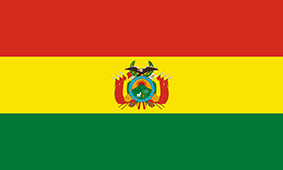
Bolivia political deal clears gas line, urea plant

Jeanine Anez, the conservative former senator who declared an interim administration after longtime president Evo Morales resigned on 10 November, struck a political compromise yesterday with Morales' Movement toward Socialism party (MAS) that will lead the country to new elections by around the end of April 2020.
Morales supporters agreed to lift roadblocks, while the Anez administration vowed to withdraw the military from the streets.
The military and police effectively abandoned Morales after he declared victory in his bid for a fourth presidential term in 20 October elections that the Washington-based Organization of American States (OAS) deemed to be tainted.
Unrest broke out shortly after the elections, and later focused around La Paz and Cochabamba where Morales supporters had demanded his return. Tensions peaked last week when protesters blocked the Senkata fuel terminal in El Alto outside of La Paz.
The lifting of the roadblocks has allowed technicians to access the Carrasco-Cochabamba gas pipeline that was sabotaged in early November, allegedly by Morales supporters shortly after he fled to Mexico where he was given political asylum. Around 200m of the domestic pipeline were damaged, according to Bolivia's state-owned oil and gas company YPFB.
Bolivia's defense ministry reported that farmers agreed to allow workers from YPFB to access the pipeline and undertake repairs.
The pipeline supplies the 700,000 t/yr Bulo Bulo urea and ammonia plant in Cochabamba's jungle region. YPFB said it was too early to determine how much time would be needed to fix the line.
The plant had been producing at a reduced capacity since late October because of the roadblocks that prevented urea supply from reaching neighboring Brazil.
YPFB signed a commercial deal on 15 October with Russia's Acron to provide natural gas for urea production at a plant that the Russian company operates in Brazil's Mato Grosso do Sul state. Under the contract, Acron will help distribute urea from the Bolivian plant.
The unrest in Bolivia did not impact the country's pipeline gas exports to Brazil and Argentina which account for the bulk of the government's revenue. YPFB had warned its counterparts in both countries on 11 November of possible interruptions, but these never materialized. The operations of foreign companies, including Spain's Repsol, France's Total, Shell and Russia's Gazprom, were largely unaffected.
Evo's friends
Under ground-breaking legislation approved by the MAS-controlled congress yesterday, a new electoral board will be installed within 20 days. The board is tasked with calling elections within 120 days.
The legislation prohibits Morales and his former vice president Alvaro Garcia from running in the new elections. Garcia fled to Mexico along with Morales, a steadfast ally of Venezuela's president Nicolas Maduro, whose government is the target of US sanctions.
The indigenous Morales was first elected in 2005 on a resource nationalist platform and served nearly 14 years before resigning. Despite his rhetoric, the Morales administration provided a stable operating climate for oil and gas companies.
Morales and his supporters inside and outside Bolivia say he was the victim of a coup. Among his regional backers are Mexico, Cuba, Venezuela and Uruguay. Montevideo's stance could now swing into the anti-Morales camp if the initial results of a 24 November run-off election favoring center-right Luis Lacalle Pou are confirmed. But Argentina is shifting leftward with incoming president Alberto Fernandez, who replaces pro-business Mauricio Macri early next month.
By Lucien Chauvin and Patricia Garip


Trump weighs using $2 billion in CHIPS Act funding for critical minerals

Codelco cuts 2025 copper forecast after El Teniente mine collapse

Electra converts debt, launches $30M raise to jumpstart stalled cobalt refinery

Abcourt readies Sleeping Giant mill to pour first gold since 2014

Barrick’s Reko Diq in line for $410M ADB backing

Nevada army depot to serve as base for first US strategic minerals stockpile

Tailings could meet much of US critical mineral demand – study

Viridis unveils 200Mt initial reserve for Brazil rare earth project

SQM boosts lithium supply plans as prices flick higher

Energy Fuels soars on Vulcan Elements partnership

Northern Dynasty sticks to proposal in battle to lift Pebble mine veto

Giustra-backed mining firm teams up with informal miners in Colombia

Critical Metals signs agreement to supply rare earth to US government-funded facility

China extends rare earth controls to imported material

Galan Lithium proceeds with $13M financing for Argentina project

Silver price touches $39 as market weighs rate cut outlook

First Quantum drops plan to sell stakes in Zambia copper mines

Ivanhoe advances Kamoa dewatering plan, plans forecasts

Texas factory gives Chinese copper firm an edge in tariff war

Energy Fuels soars on Vulcan Elements partnership

Northern Dynasty sticks to proposal in battle to lift Pebble mine veto

Giustra-backed mining firm teams up with informal miners in Colombia

Critical Metals signs agreement to supply rare earth to US government-funded facility

China extends rare earth controls to imported material

Galan Lithium proceeds with $13M financing for Argentina project

Silver price touches $39 as market weighs rate cut outlook

First Quantum drops plan to sell stakes in Zambia copper mines

Ivanhoe advances Kamoa dewatering plan, plans forecasts

















